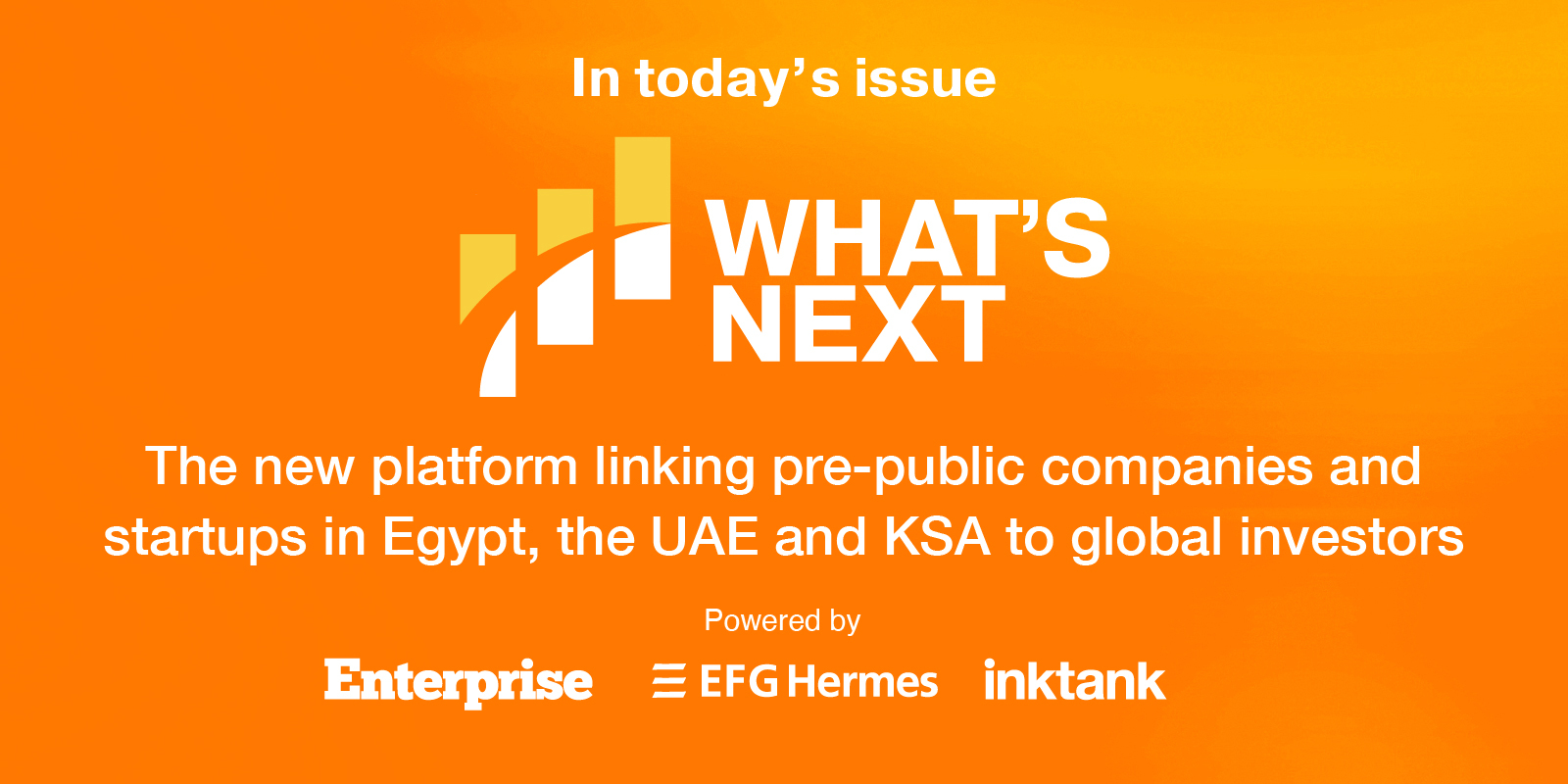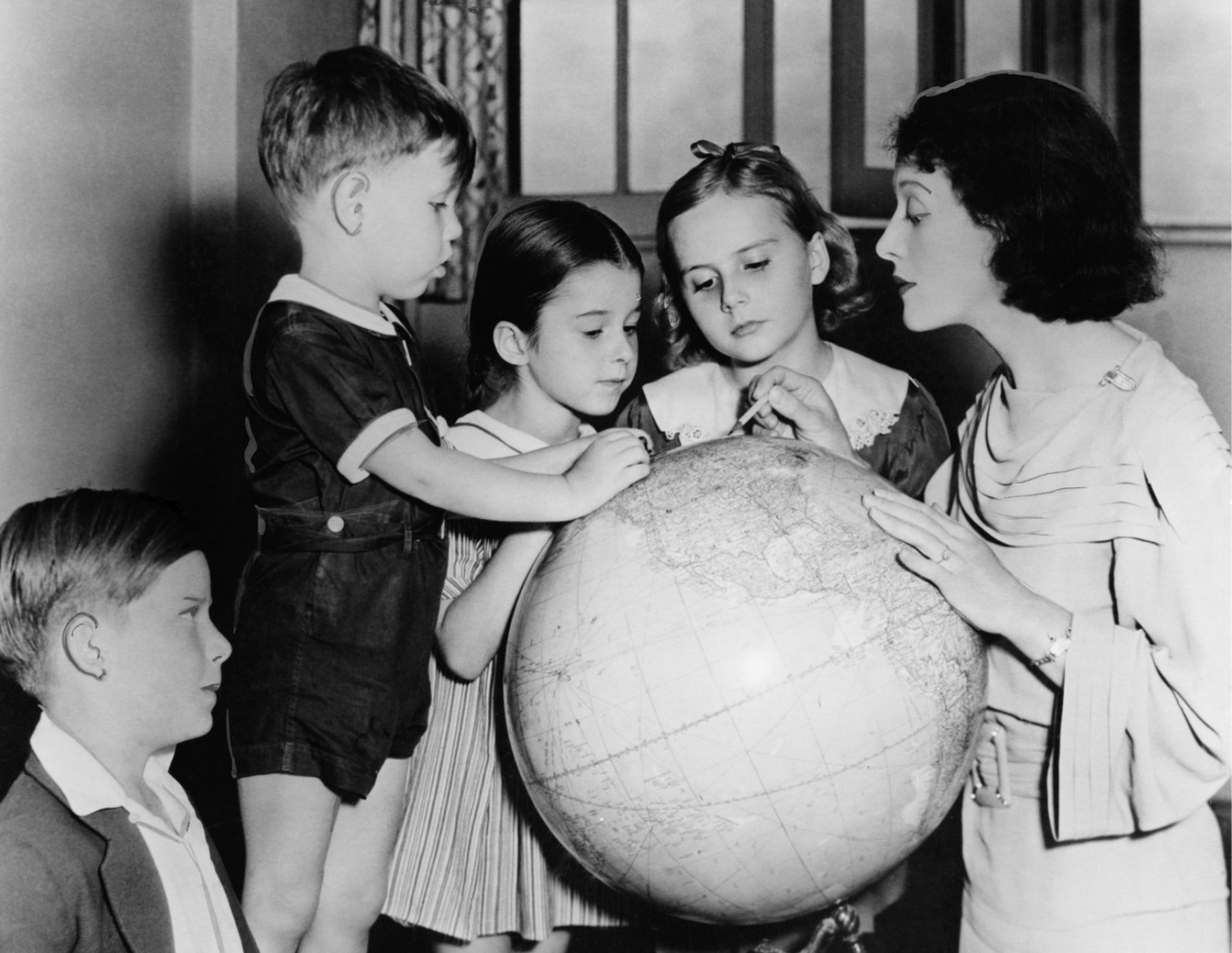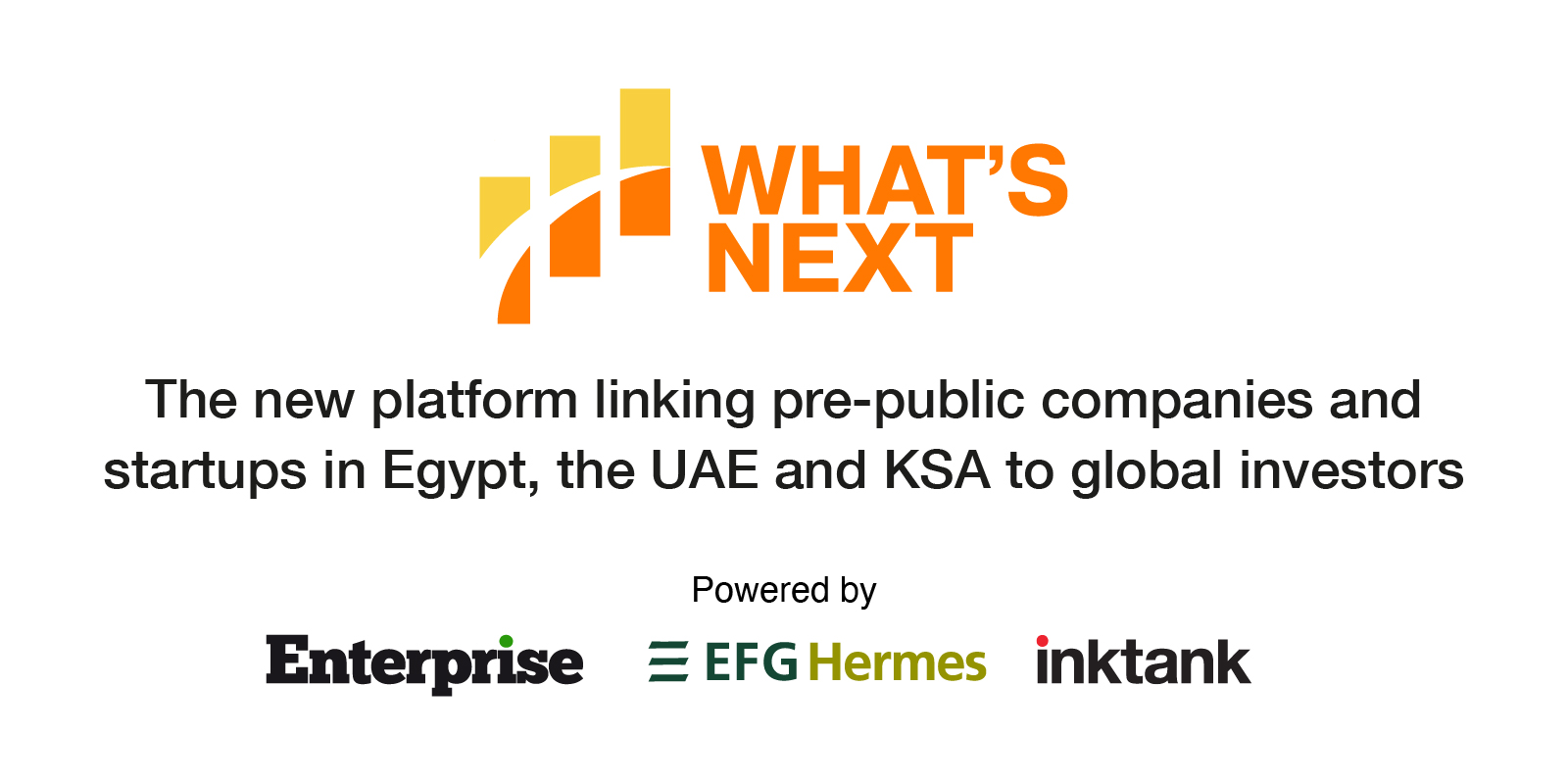- Introducing: What’s Next. (Editor’s Note)
- World, meet Omicron. (What We’re Tracking Today)
- Egypt bans flights from southern Africa as world panics over new covid variant. (Speed Round)
- Egypt signs MoUs with Greece, Israel to boost gas export plans. (Energy)
- Final offer: Aldar-ADQ reportedly won’t raise SODIC bid if MTO fails. (M&A Watch)
- EFG’s valU plots expansion into Saudi Arabia and North Africa, eyes M&A here at home. (Finance)
- CIRA + Elsewedy joint venture teams up with SFE to build schools in Cosmic Village. (Education)
- Homzmart launches in KSA this week. (Startup Watch)
- M&A looks set to be What’s Next on Planet Startup. (What’s Next)
- Planet Finance — EV IPOs to raise USD 100 bn by 2023, says Bank of America.

Sunday, 28 November 2021
AM — Introducing What’s Next: An exclusive platform offering the visibility, advice and access to capital and ideas that you need to grow your business
TL;DR
EDITOR’S NOTE
Good morning, wonderful people, and welcome to a very special edition of Enterprise. Since we started back in fall 2014, we’ve believed that among other things, an Enterprise story needs to orient you in time and space. It needs to tell you not just what happened, but why it happened and — critically — what’s next in the story. Cabinet gave the thumbs-up to a piece of legislation? Great — what’s next? Company “A” is bidding to acquire Company “B”? Wonderful — what’s next?
“What’s next?” has for years been our internal shorthand for “Where does the story go from here?” It’s an idea that has expanded to include everything from Enterprise Explains (“What’s a securitized bond?” through to “What’s an NFT?”) to our coverage of how technology is changing our lives and the way we do business. And as longtime readers know, when we ask “What’s next?”, it goes hand in hand with two key followups: What does it mean? And why is it important?
This morning, What’s Next becomes the first exclusive platform in frontier markets to identify the next generation of great businesses in Egypt, the UAE and Saudi Arabia.
We’re honoured to be launching What’s Next in partnership with our friends at EFG Hermes and Inktank. What’s Next is our newest weekly vertical (appearing every Sunday morning). It’s also a platform through which we’re going to introduce readers, investors and the wider business community to the next generation of outstanding businesses. There’s never been a more exciting time to do this: Our part of the world is being reshaped by a boom in entrepreneurism that’s changing everything from how family businesses run themselves to how we build startups and bootstrapped companies alike.
What’s Next will see us take 20 Egyptian companies to a very special face-to-face investor conference taking place in early 2022.
What’s in it for What’s Next companies? The visibility, advice and access to capital and ideas that you need to grow your business. We’re going to give founders and c-suite officers from 20 hand-selected companies visibility to our wider community, the strategy and materials they need to engage with global investors — and then face-to-face access to the financial and strategic investors who could help them take their businesses to the next level. Participating companies will get exposure and access to new ideas from Enterprise. Outreach, access to a global network of investors, world-class advisory services, and sector research from EFG Hermes. And investor decks, reporting and transaction support from Inktank — and more.
What’s in it for investors? We’re offering venture capital, private equity and public market investors a look at the companies whose people, ideas, technologies, products and markets will literally be What’s Next. They’re the businesses that are driving the tempo of M&A, who are entry points to Egypt and regional markets for multinational giants, and who have it in them to become the next generation of great publicly traded companies.
We’ll also be talking about the ideas and technologies that are going to transform all of our businesses, from garden-variety tech to artificial intelligence and gender equity.
*** Is your business What’s Next? Reach out to us on whatsnext@enterprise.press to learn more.
The launch of What’s Next caps a big year for us here at Enterprise, from the introduction of our very popular PM edition in partnership with CIB and Act Financial to our weekly Going Green vertical produced in association with our friends at Infinity. And all of that was made possible by our big redesign and investment in technology, which we unveiled a year ago tomorrow (look for lots more on that front in 2022…).
None of this would have been possible were it not for the steadfast support of the 180k readers who start and end their workdays with us, month in and month out.
Thank you, all of you, from the bottom of our hearts.

In today’s issue: Startups buying startups isn’t just an “American” thing — an increasing number of Egyptian companies are looking to grow through acquisition. Now that a handful of pioneers have proven the market, you can expect the inflow of VC and private equity funding and higher valuations (among other factors) to make it even more common.
The industries most likely to see startup-driven waves of consolidation in the coming years? Look at fintech, logistics and last-mile delivery, edtech and, later, healthcare. Top execs from Swvl, Klivvr, MaxAB, A15, AUC V-Lab and Tyro are your guides in this week’s issue of What’s Next, below.
WHAT WE’RE TRACKING TODAY
THIS MORNING: World, meet Omicron.
Covid is back in global headlines in a big way after the emergence of a new variant in southern Africa caused what can only be called “restrained panic” across the world. Just a day after the World Health Organization designated the so-called Omicron strain as a “variant of concern,” travel bans are back in vogue as cases began popping up around Europe — and financial markets tanked.
What we know about Omicron: According to the WHO, the variant has “a large number of mutations, some of which are concerning” and early evidence suggests that (a) it may be transmitted more easily, (b) that it could be able to dodge existing vaccines, and (c) that there could be a greater risk of reinfection for folks who have already had covid. Known as B.1.1.529, the variant was first found by scientists working in Botswana and Hong Kong before being discovered in South Africa amid a recent spike in cases in the country.
And what we don’t: The jury is still out on whether the current generation of covid vaccines will be as effective against the variant. Worryingly, scientists have said that the variant has an “unprecedented” number of mutations to the spike protein — the part of the virus targeted by vaccines — but stressed that we do not yet have enough information to say whether it is more resistant to vaccines or more transmissible. The WHO has not yet commented on the efficacy of vaccines with Omicron.
Cue the travel bans and restrictions: Much of the world — including, the US, Canada, the EU and much of our region — has moved to quarantine southern Africa and has suspended flights with six countries in the region. Israel has gone so far as to plan to completely shut its borders after detecting its first case yesterday. The UK has moved to reinstate mandatory mask-wearing after detecting several cases, while cases are now spreading in the EU, where several countries have already reimposed some lockdown restrictions amid huge case numbers.
We hate to cosplay Captain Hindsight here, but this feels like it was all too predictable: An almost inevitable consequence of the absurdly unequal distribution of vaccines across the world where the richest countries have drip-fed doses to the global south and hoarded the bulk for themselves. Now, some of the poorest parts of the world are now being punished by the same countries that deliberately prevented them from adequately vaccinating their populations. But we digress…
MARKET WATCH- Omicron is delivering a beating to stocks in Asia, Europe and the United States. The Vix — a measure of volatility that’s often called the “fear index” — has shot up, and oil had its biggest one-day drop in price since August 2020, setting up a tense meeting of OPEC+ this coming Thursday. The Financial Times and Bloomberg have more.
Omicron is everywhere on the front pages this morning — and it is likely to stay there for much of the coming week: AP | CNN | ABC News | NYT | France24 | Wall Street Journal.
WATCH THIS SPACE- There was news over the weekend that non-resident travelers would be allowed to fly directly to Saudi Arabia from Egypt regardless of vaccine status starting this coming Wednesday (subject to certain restrictions and requirements). Omicron’s appearance could see that policy change in a hurry, so keep an eye out for travel warnings.
COVID WATCH
Egypt bans flights from southern Africa as world panics over new covid variant

That February 2020 feeling: Egypt is among a growing number of countries moving to prevent the newly-discovered Omicron covid variant Omicron from arriving on its shores. Following in the footsteps of the US, Canada EU and many countries in the Middle East, the Madbouly government announced on Thursday that it has suspended flights from seven countries in southern Africa, where the World Health Organization said the strain originated and is currently spreading.
Direct flights between Egypt and South Africa, Lesotho, Botswana, Zimbabwe, Mozambique, Namibia and Eswatini have been suspended and travellers arriving in Egypt from the countries via indirect flights will face additional precautionary measures.
What are the measures? Travellers coming from these countries to Egypt for transit or as a final destination will have to take a rapid covid test. If they test positive, they will have to leave the country on the same plane they flew in on. Travellers who test negative will need to self-quarantine for a week and take a PCR test by the end of it.
So far, Egypt is in the clear: Health officials have not yet detected any Omicron cases in Egypt, Health Ministry spokesman Hossam Abdel Ghaffar told Kelma Akhira’s Lamees El Hadidi (watch, runtime: 10:50) last night.
A traveller returning to Belgium from Egypt was said to have been with the new covid-19 variant that originated in Botswana and South Africa, a virologist working with the Belgian health authorities, said on Twitter. They were headed back to the EU country via Turkey on 11 November and started developing symptoms. The traveler was confirmed to have the B.1.1.529, Omicron variant, 11 days later, Van Ranst said.
The ministry sought to distance Egypt from Belgium's patient zero last night: Abdel Ghaffar told El Hadidi that it is unlikely she became infected in Egypt because her symptoms appeared 11 days after leaving the country. A WHO official in Belgium reportedly told Egyptian authorities that the patient took two PCR tests after leaving Egypt, both of which were negative.
We don’t have to worry about the imminent return of remote learning: In an interview on El Hekaya last night, Education Minister Tarek Shawki said that it is too early to say what will happen in the coming weeks because we still don’t know much about the variant (watch, runtime: 1:47). “Our main concern is to carry on with the academic year, because we wasted a lot of time over the past two years,” he told show host Amr Adib, explaining that the Education Ministry is currently awaiting the Health Ministry’s instructions before making any major decisions.
Health Ministry officials are ramping up covid precautions at land, air, and seaports and will begin tightening the screening of travellers entering the country, Higher Education Minister and acting Health Minister Khaled Abdel Ghaffar said, according to a statement.
The ministry reported 931 new covid-19 infections yesterday, up from 913 the day before. Egypt has now disclosed a total of 355,767 confirmed cases of covid-19. The ministry also reported 68 new deaths, bringing the country’s total death toll to 20,305.
ENERGY
Egypt partners with Greece, Israel to boost gas export plans

Egypt’s ambitions to become a regional gas hub received a boost last week after the Madbouly government signed agreements with Greece and Israel that could help it grow exports to Europe. The MoUs, inked during Thursday’s meeting of the East Mediterranean Gas Forum in Cairo, could see Egypt import more natural gas from Israel and increase shipments to Greece, which have failed to pick up this year despite both Idku and Damietta LNG plants being operational.
Increased gas shipments from Israel would be used for re-export, Egypt’s Oil Ministry said in a statement, stopping short of disclosing how much gas Egypt could purchase. Under the existing USD 19.5 bn agreement with Israel, Egypt is currently importing 2.1 bcm a year, which will increase to 6.7 bcm from 2023 through to 2034.
The increased supplies could be sent through a new pipeline being considered by the two countries, Israel’s energy minister wrote on Twitter. Israel’s energy ministry said last month there are discussions to establish a new USD 200 mn onshore pipeline that would connect Israel and Egypt via North Sinai. Sources at the time said that the pipeline could allow Egypt to import an extra 3-5 bn cubic meters of gas per year.
More shipments to Greece + a new pipeline could be in the cards: The MoU signed by Greece and Egypt will see the countries work more closely on LNG marketing, exploration and production activities in the EastMed, and consider setting up a new subsea pipeline linking the two countries, the Greek energy ministry said. The agreement will also lay the foundation for Greek companies to sign agreements with Egypt’s state gas company EGAS, Greek importer DEPA said following the signing.
The Egypt-Greece pipeline would come in addition to the planned link between Cyprus’ Aphrodite natural gas field and Egypt, which will allow Cyprus to export its gas to Europe via Egypt’s liquefaction facilities. The pipeline is currently expected to come online in 2024 or 2025.
Shipments to Greece have struggled to pick up this year: Greece imports most of its gas from Algeria, Azerbaijan, Russia and Turkey and has only received one shipment of Egyptian gas in 2021, despite the re-opening of the Damietta LNG plant in February and the recovery of export volumes following a difficult 2020.
Egypt has dispatched at least 75 LNG shipments so far in 2021 after having only shipped 24 during the whole of last year, according to data from S&P Global Platts.
A regional hydrogen trade in the making: Israel and Egypt signed an MoU that could open the possibility of using an existing pipeline to transport hydrogen between the two countries, the Oil Ministry said in its statement. Egypt is looking to capitalize on the increasing international interest in green hydrogen as an alternative source of clean energy, and has brought on board several local and overseas private sector companies to build its first hydrogen production facility in Ain Sokhna.
Good timing: The potential to ramp up exports to Europe comes at a time when spiralling global gas prices and geopolitical tensions with Russia have European nations searching for alternative gas suppliers
Egypt became a net exporter of LNG in 2018 after the discovery of the supergiant Zohr gas field — the Mediterranean’s largest — allowed us to pull the plug on LNG imports. Egypt’s LNG exports also picked up steam after we brought the Damietta LNG plant online earlier in the year following an eight-year hiatus, with at least 30 LNG shipments making their way out of the revived plant and the Idku facility since then.
What is the EastMed Gas Forum? The recently-ratified forum brings together Egypt, Greece, Cyprus, Jordan, Israel, Palestine, Italy and France to coordinate project exploration in the energy field. The organization, which is headquartered in Cairo, is now helmed by Egypt’s Osama Mehrez, who was announced as secretary general of the forum on Thursday according to Al Borsa. The forum’s next meeting is slated for June 2022 in Cyprus.
M&A WATCH
A final offer?
The Emirati consortium bidding to acquire upmarket developer SODIC will not up its bid again if shareholders reject the price of the ongoing mandatory tender offer, Al Shorouk reports. Aldar Properties and Abu Dhabi sovereign fund ADQ have already upped their offer price from EGP 18-19 to EGP 20, valuing the Egyptian real estate player at EGP 7.1 bn, but will not do so again if the MTO fails, the newspaper claims, citing unnamed sources at Aldar.
SODIC’s shares closed on Thursday at EGP 19.30 each, near the upper end of the EGP 13.95-19.50 band in which they’ve been trading for the past 52 weeks, according to market data from Reuters.
The consortium is bidding to acquire 90% of SODIC in an MTO that kicked off last week after it received approval from the Financial Regulatory Authority. Shareholders must agree to sell at least 51% of the company’s shares for the agreement to go through, and they have until 7 December to subscribe.
SODIC’s largest shareholder hasn’t made a decision: A consortium of Act Financial, Hassan Allam Properties and Concrete Plus Engineering has not made a final decision about whether to sell their stakes, sources tell Al Shorouk. Together the companies make up SODIC’s single-largest shareholder, owning a 15% stake in the company.
Correction: 29 November 2021.
A previous version of this article incorrectly stated that EFG Hermes has decided to sell a 2.4% in SODIC. A source close to the matter informed us that EFG already offloaded its stake in the company prior to the bid.
FINANCE
valU eyes regional expansion, M&A could be in the cards here in Egypt

EFG Hermes’ consumer finance platform valU is planning to expand into Saudi Arabia and North Africa as early as next year in what will be the company’s first cross-border expansion, EFG Hermes Finance CEO Walid Hassouna told Bloomberg Asharq.
Saudi has been on valU’s radar for a while: Group CEO Karim Awad previously told us that the group believes the company as a fintech solution could do well in Saudi Arabia — and that it was considering expanding into three other countries.
M&A in the cards, too? ValU is also looking to acquire local companies “that do not work in the same field, but serve the same customers,” Hassouna said, without going into further detail.
The company has carved out for itself a sizable market share in Egypt: Official figures (pdf) show that this year valU has risen to become the third-largest non-bank consumer lender in the country with a market share of 11.3%. Its lending portfolio more than doubled y-o-y in 3Q2021, helping its revenues to more than triple to EGP 97 mn, according to its most recent earnings release (pdf).
Fresh securitized bond tranche coming: ValU is planning to issue the next EGP 500 mn tranche of securitized bonds as part of its EGP 2 bn securitization program in 1H2022, Hassouna said. The company kicked off the program in September with a EGP 323 mn bond issuance.
ALSO FROM EFG-
EFG Hermes’ will provide a wider range of brokerage services on its relaunched and expanded digital trading platform EFG Hermes One, according to a press release (pdf). The new version, which was unveiled during RiseUp on Thursday, also features a new digital payment gateway, a new user interface, as well as a “virtual simulator” that allows investors to practice before executing real trades.
EDUCATION
CIRA + Elsewedy joint venture teams up with SFE to build schools in Cosmic Village

Two new schools will be set up in the Sixth of October’s Cosmic Village under a private-public partnership Cairo Egypt for Education (CEE, a joint venture of CIRA and Elsewedy Capital) and the Sovereign Fund of Egypt (SFE), CIRA (pdf) and the Planning Ministry said in statements over the weekend. The partnership will see EGP 350 mn invested in the project, which will set up a branch of Futures Tech (a branded K-12 school that caters to Egypt’s middle-income segment) and another branch of Regent British School (a mid-tuition range international school that made its debut in New Mansoura last year).
Public-private partnerships in large-scale education investment vehicles are on the up this year: CIRA was among the first to hop on the bandwagon when it announced it was starting a new company with Al Ahly Capital Holding to invest in middle-income education providers. The EGX-listed private education outfit is also separately setting up a EGP 2.5 bn private university in New Damietta through a new joint venture with Elsewedy Capital.
And the SFE has been getting in on the education market: The nation’s sovereign fund was among the backers to make a commitment to Lighthouse Education, an education investment vehicle established last summer which raised EGP 560 mn in its first close. Misr Ins. Holding, Banque Misr, and Saudi Arabia’s Al Rajhi Investment Holding Company also made contributions.
Want more? Check out our Blackboard issue on how the nation is increasingly turning to large-scale public-private investment platforms to drive much-needed investment in new classrooms.
STARTUP WATCH
Homzmart launches in KSA this week

Furniture and home goods marketplace Homzmart is launching in Saudi Arabia this week after tripling the size of its Egypt operations this year, according to a press release (pdf). The expansion will give Homzmart access to a USD 15 bn market that is growing at a rate of 10% annually.
About Homzmart: Founded in 2019 by former Jumia execs Mahmoud Ibrahim and Ibrahim Mohamed, Homzmart connects suppliers with consumers, showcasing 55k furniture products from different brands and merchants. In May of this year, the company landed USD 15 mn in a series A round from China’s MSA Capital and Emirati-Saudi VC firm Nuwa Capital, bringing the total amount raised by the company to USD 17.2 mn. Other investors included Rise Capital, Impact46, EQ2 Ventures and Outliers Ventures.
ALSO FROM PLANET STARTUP- Digital legal advisor Hekouky has raised an undisclosed amount in a pre-seed round from Saudi-based Nama Ventures, according to Wamda. The Cairo-based startup, which bills itself as a one-stop-shop legaltech platform, will use the funding to expand its business across Egypt. It aims to help entrepreneurs and business owners register trademarks and incorporate their companies under Egyptian law. Hekouky had earlier this year been selected to take part in a Google-led three-month digital accelerator program. The startup was founded this year by Mayy Abdelbary (LinkedIn), the former CTO of payroll consultant PayNas, Hala Riad (LinkedIn), a corporate lawyer, and Fatma Khalil (LinkedIn), an accountant-entrepreneur.
MINING
State plans to start commercial operations at 1-mn oz gold concession in Eastern Desert
The Oil Ministry plans in the coming months to start commercial gold exploration at the Iqat area in the Eastern Desert, which is thought to house more than 1 mn ounces of gold, the ministry announced yesterday. More than USD 1 bn could be invested over the next 10 years in the deposit, which falls within the state-owned Shalateen Mining Company’s concession area. The area has an average gold concentration of 1.5 grams per tonne of rock, Oil Minister Tarek El Molla said in the statement.
Doing the digging: Iqat Gold Mining Company — a joint venture company set up by the Egyptian Mineral Resources Authority and the military-owned Shalateen Mining Company — is developing the concession, making it only the third gold mine operator in the country, alongside Centamin and the Hamash Company, a JV between the state and Cyprus’ Matz Holding.
The news was picked up by the foreign press: Al Arabiya | CNN | CNBC Arabia.
MOVES
Haitham Abdel Moneim joins Orientals Group as chief investment officer
Our friend Haitham Abdel Moneim (LinkedIn) has joined the Orientals Group as chief investment officer after a nearly eight-year run with EK Holding, where he was most recently director of investor relations. The Khamis family owned Orientals has a global footprint and holds investments of more than USD 3.1 bn spanning industrials, retail, real estate, education and petrochemicals. Haitham began his career at LinkdotNet and Raya Integration and was investor relations manager at Oriental Weavers from 2007 through 2013.
LAST NIGHT’S TALK SHOWS
Last night’s talk shows put covid’s latest variant Omicron front and center. We have the full story in this morning’s covid watch featuring what the health and education ministries had to say on the matter.
On a lighter note, Thursday’s procession that opened Luxor’s Avenue of the Sphinxes also got its fair share of airtime. Masaa DMC (watch, runtime: 15:50) hosted some of the entertainers who took part in the procession, while Ala Mas’ouleety (watch, runtime: 4:52) showcased the international attention the procession got. Kelma Akhira (watch, runtime: 1:13) and Al Hayah Al Youm (watch, runtime: 26:30) also had the story.
EGYPT IN THE NEWS

Egypt’s lavish spectacle in Luxor is all the rage in the foreign press this morning, with tens of outlets narrating Thursday’s procession that opened the 3k-year-old Avenue of the Sphinxes (also known as The Road of the Rams) following its decades-long renovation, which was described as a “glitzy” and “spectacular” (watch, runtime: 1:48:15). The event included a procession of hundreds of performers dressed in pharaonic costumes along the 2.7 km-long road, a reenactment of the ancient Opet festival — in which statues of Theban deities were paraded during the New Kingdom era to celebrate the flooding of the Nile — and a firework display to wrap up the evening.
The opening of the Avenue of the Sphinxes marks the inauguration of one of the world’s largest open-air archaeological sites and comes as Egypt continues to up its efforts to revive tourism after the pandemic all but shuttered the industry for much of last year. This was the second made-for-TV spectacle of the year, following April’s “Golden Parade” ceremony to mark the opening of the National Museum of Egyptian Civilization.
Coverage is everywhere from Bloomberg and the Washington Post to the Associated Press, BBC, CNN, The Times, DW and The National.
PLANET FINANCE
Electric vehicle-related IPOs could raise some USD 100 bn by the end of 2023, according to Bank of America Corp, Bloomberg reported. With investors betting on growing demand for cleaner cars, EV-makers have become stock market darlings, and BofA predicts the sector will see growing investments in the EV space spanning batteries to charging cars, with companies both spinning off units and going public. The largest IPO of 2021 was electric-truckmaker Rivian, which became the world’s third most valuable automaker despite no revenues booked so far, while industry leader Tesla almost doubled in value over the past year.
|
|
EGX30 |
11,431 |
+0.7% (YTD: +5.4%) |
|
|
USD (CBE) |
Buy 15.66 |
Sell 15.76 |
|
|
USD at CIB |
Buy 15.66 |
Sell 15.76 |
|
|
Interest rates CBE |
8.25% deposit |
9.25% lending |
|
|
Tadawul |
11,299 |
-0.6% (YTD: +30.0%) |
|
|
ADX |
8,454 |
+0.7% (YTD: +67.6%) |
|
|
DFM |
3,170 |
+0.4% (YTD: +27.2%) |
|
|
S&P 500 |
4,595 |
-2.3% (YTD: +22.3%) |
|
|
FTSE 100 |
7,044 |
-3.6% (YTD: +9.0%) |
|
|
Brent crude |
USD 72.72 |
-11.6% |
|
|
Natural gas (Nymex) |
USD 5.48 |
+7.1% |
|
|
Gold |
USD 1,788.10 |
+0.1% |
|
|
BTC |
USD 54,673 |
+0.9% (as of midnight) |
THE CLOSING BELL-
The EGX30 rose 0.7% at Thursday’s close on turnover of EGP 1.1 bn (26.5% below the 90-day average). Regional investors were net buyers. The index is up 5.4% YTD.
In the green: Heliopolis Housing (+8.8%), TMG Holding (+6.4%) and Rameda (+5.7%).
In the red: Cleopatra Hospital (-1.5%), Speed Medical (-1.3%) and CIB (-0.7%).
CALENDAR
November: The French-Egyptian Business Forum is set to take place in the Suez Canal Economic Zone.
24 November-7 December (Wednesday-Tuesday): Designated period for SODIC shareholders to subscribe to Aldar Properties and ADQ’s mandatory tender offer (pdf).
26 November-5 December (Friday-Sunday): The 43rd Cairo International Film Festival.
28 November-1 December (Sunday-Wednesday): Creative Industry Summit, Nile Ritz-Carlton.
29 November (Monday): Deadline for registration for MCIT’s online career training program by Digital Egypt Youth.
29 November-2 December (Monday-Thursday): Egypt Defense Expo, Egypt International Exhibition Centre.
30 November (Tuesday): Launch of open call by KfW for green project proposals in Egypt as part of their Investing for Employment facility (pdf).
End of November: El Nasr Automotive expects to have found a replacement for Dongfeng as its partner for its local EV assembly plans.
1 December (Wednesday): Unvaccinated members of the public will be banned from government buildings from this date; unvaccinated students will be prevented from accessing university campuses.
1 December (Wednesday): Government departments will begin moving to offices in the new capital.
2 December (Thursday): The 23rd OPEC and non-OPEC ministerial meeting.
5 December (Sunday): Purchasing managers’ index figures for November for Egypt, Saudi Arabia, and Qatar will be released.
7-8 December (Tuesday-Wednesday): North Africa Trade Finance Summit.
8-10 December (Wednesday-Friday): Global Forum for Higher Education and Scientific Research (GFHS), Cairo, Egypt.
9-10 December (Thursday-Friday): The US’s Summit for Democracy. Egypt is not among the invitees.
10 December (Friday): Capmas will release November inflation figures.
10 December (Friday): Silicon Waha’s Startup Factory program kicks off in Assiut Technology Zone.
12 December (Sunday): Raya Holding’s Ordinary General Assembly meeting.
12-14 December (Sunday-Tuesday): Food Africa Cairo trade exhibition, Egypt International Exhibition Center, Cairo, Egypt.
13-17 December: United Nations Convention against Corruption, Sharm El Sheikh, Egypt.
14 December (Tuesday): Inquiry session for the Industrial Development Authority’s licenses to manufacture steel products.
14-19 December (Tuesday-Sunday): The Cairo International Festival for Experimental Theater.
14-15 December (Tuesday-Wednesday): The Federal Reserve meets to review interest rates.
15 December (Wednesday): Deadline for joint stock companies and investment companies in Cairo to join e-invoicing platform.
15 December (Wednesday): Target date for snackmaker Edita to wrap up due diligence on its acquisition of the Ole brand owner Egyptian Belgian Company.
15 December (Wednesday): The European Bank for Reconstruction and Development will give its final approval for a USD 100 mn facility to state-owned Banque Misr to finance local SMEs working on green projects.
16 December (Thursday): The CBE’s Monetary Policy Committee will meet to review interest rates.
End of 4Q2021: EdVentures plans to have closed at least one more edtech investment round.
End of 4Q2021: Fawry plans to have launched its MyFawry card.
1H2022: The World Economic Forum annual meeting, location TBD.
1H2022:: e-Aswaaq’s tourism platform will roll out its ticketing and online booking portal across Egypt.
1H2022: e-Finance’s digital healthcare service platform, eHealth, will launch its services.
1Q2022: Launch of the Egyptian Commodities Exchange.
1Q2022: Swvl acquisition of Viapool expected to close.
Second Half of January: Egypt will host the Egyptian-Bahraini Joint Committee.
1 January 2022: Capital gains tax comes into effect on the EGX for local investors.
7 January 2022 (Friday): Coptic Christmas.
10-13 January 2022 (Monday-Thursday): World Youth Forum, Sharm El Sheikh.
15 January (Saturday): Target date for the finalization of snackfood giant Edita’s acquisition of the Egyptian Belgian Company, owner of the Ole brand.
17-19 January 2022 (Monday-Wednesday): World Future Energy Summit, Abu Dhabi.
27 January 2022 (Tuesday): National holiday in observance of 25 January revolution anniversary / Police Day.
11 February 2022 (Friday): Deadline for Anghami SPAC merger.
11-13 February (Friday-Sunday) FIBA Intercontinental Cup, Cairo.
14-16 February 2022 (Monday-Wednesday): Egypt Petroleum Show, Egypt International Exhibition Center, New Cairo, Egypt.
15 February 2022 (Tuesday): The Industrial Development Authority’s deadline for receiving offers from companies for licenses to manufacture steel products.
19 February 2022 (Saturday): Public universities begin the second term of the 2021-2022 academic year.
27 February – 3 March (Sunday-Thursday): What’s Next conference.
March 2022: 4Q2021 earnings season.
March 2022: World Cup playoffs.
2 April 2022 (Saturday): First day of Ramadan (TBC).
22-24 April 2022 (Friday-Sunday): World Bank-IMF spring meeting, Washington D.C.
24 April 2022 (Sunday): Coptic Easter Sunday (holiday for Coptic Christians).
25 April 2022 (Monday): Sham El Nessim.
25 April 2022 (Monday): Sinai Liberation Day.
Late April – 15 May 2022: 1Q2022 earnings season
May 2022: Investment in Logistics Conference, Cairo, Egypt.
2 May 2022 (Monday): Eid El Fitr (TBC).
16 June 2022 (Thursday): End of 2021-2022 academic year for public schools.
27 June-3 July 2022 (Monday-Sunday): World University Squash Championships, New Giza.
30 June 2022 (Thursday): June 30 Revolution Day, national holiday.
2H2022: IEF-IGU Ministerial Gas Forum, Egypt. Date + location TBA.
8 July 2022 (Friday): Arafat Day.
9-13 July 2022 (Saturday-Wednesday): Eid Al Adha, national holiday.
30 July 2022 (Saturday): Islamic New Year.
Late July – 14 August 2022: 2Q2022 earnings season.
6 October 2022 (Thursday): Armed Forces Day, national holiday.
8 October 2022 (Saturday): Prophet Muhammad’s birthday.
18-20 October 2022 (Tuesday-Thursday): Mediterranean Offshore Conference, Alexandria, Egypt.
Late October – 14 November 2022: 3Q2022 earnings season.
**Note to readers: Some national holidays may appear twice above. Since 2020, Egypt has observed most mid-week holidays on Thursdays regardless of the day on which they fall and may also move those days to Sundays. We distinguish below between the actual holiday and its observance.
Enterprise is a daily publication of Enterprise Ventures LLC, an Egyptian limited liability company (commercial register 83594), and a subsidiary of Inktank Communications. Summaries are intended for guidance only and are provided on an as-is basis; kindly refer to the source article in its original language prior to undertaking any action. Neither Enterprise Ventures nor its staff assume any responsibility or liability for the accuracy of the information contained in this publication, whether in the form of summaries or analysis. © 2022 Enterprise Ventures LLC.
Enterprise is available without charge thanks to the generous support of HSBC Egypt (tax ID: 204-901-715), the leading corporate and retail lender in Egypt; EFG Hermes (tax ID: 200-178-385), the leading financial services corporation in frontier emerging markets; SODIC (tax ID: 212-168-002), a leading Egyptian real estate developer; SomaBay (tax ID: 204-903-300), our Red Sea holiday partner; Infinity (tax ID: 474-939-359), the ultimate way to power cities, industries, and homes directly from nature right here in Egypt; CIRA (tax ID: 200-069-608), the leading providers of K-12 and higher level education in Egypt; Orascom Construction (tax ID: 229-988-806), the leading construction and engineering company building infrastructure in Egypt and abroad; Moharram & Partners (tax ID: 616-112-459), the leading public policy and government affairs partner; Palm Hills Developments (tax ID: 432-737-014), a leading developer of commercial and residential properties; Mashreq (tax ID: 204-898-862), the MENA region’s leading homegrown personal and digital bank; Industrial Development Group (IDG) (tax ID:266-965-253), the leading builder of industrial parks in Egypt; Hassan Allam Properties (tax ID: 553-096-567), one of Egypt’s most prominent and leading builders; and Saleh, Barsoum & Abdel Aziz (tax ID: 220-002-827), the leading audit, tax and accounting firm in Egypt.








